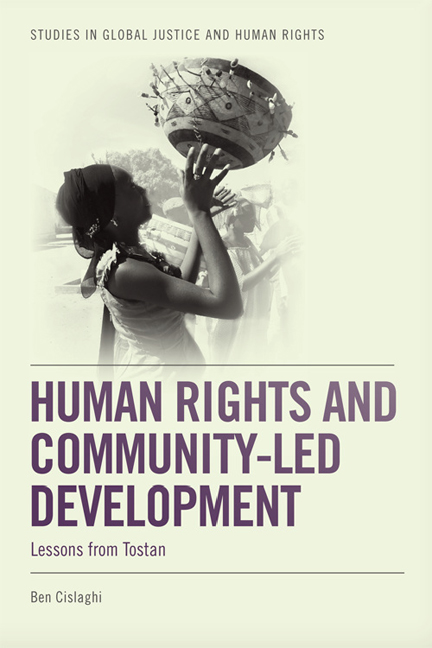2 - Rethinking Development Interventions: Potential and Challenges of Human Rights Education
Published online by Cambridge University Press: 29 April 2021
Summary
INTRODUCTION
Exploring the role that human rights education might play in fostering community development presents four key challenges. The first relates to the applicability of HRE in non-Western contexts and takes into account the either universal or relative nature of human rights. If human rights have a Western (allow me to use the word for the moment) origin, and many think they do, how can they be used in non-Western contexts? I argue that there is a way of contextualising, ‘vernacularising’, human rights that justifies their use in the non-Western world. That leads to the second challenge (treated in the second section of this chapter): how can human rights be contextualised then? What processes can help people analyse human rights critically, and what role do those processes play in helping people collaborate for their collective development? I discuss how human rights education can help people use human rights critically to engage in a generative dialogue about the problems that matter to them, and how that can help them foster their collective ‘development’. This raises a question about what development paradigm human rights education is contributing towards, the third challenge brought up in this chapter. I suggest that, while human development is an evident framework for transformative human rights education, ‘indirect’ human development is a more appropriate term for it, as human rights education enhances people's self-help capacity to achieve goals that matter to them, if necessary by challenging the sociocultural status quo that hinders their success.
The last section gives an understanding of the forces contributing to sustaining an unjust social status quo. In particular, it looks at the role of social norms, cognitive schemas, gender roles and power relations. Social behaviours are regulated by social norms learnt by participation in the life of the community. Alternative experiences can unlock diverging understandings of social relations that can in turn affect local social norms, thereby changing them. HRE then should support participants in the process of renegotiation of local social behaviours with their community by giving them the tools to transform new individual and social understandings into action. Community members can renegotiate social practices by participating in the decision-making processes available in the family and the community. The dynamics that grant different human beings with variable influence in decision-making processes are dynamics of power.
- Type
- Chapter
- Information
- Human Rights and Community-led DevelopmentLessons from Tostan, pp. 15 - 52Publisher: Edinburgh University PressPrint publication year: 2017



